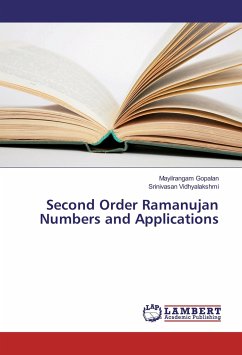Please note that the content of this book primarily consists of articles available from Wikipedia or other free sources online. In mathematics, a Ramanujan prime is a prime number that satisfies a result proven by Srinivasa Ramanujan relating to the prime-counting function.In 1919, Ramanujan published a new proof of Bertrand''s postulate which, as he says, was first proved by Chebyshev.[1] At the end of the two-page published paper, Ramanujan derived a generalized result, and that is: (x) (x / 2) 1, 2, 3, 4, 5, ... for all x 2, 11, 17, 29, 41, ... (sequence A104272 in OEIS) respectively, where (x) is the prime-counting function, that is, the number of primes less than or equal to x.The converse of this result is the definition of Ramanujan primes, and the numbers 2, 11, 17, 29, 41 are the first few such primes. In other words: The nth Ramanujan prime is the integer Rn that is the smallest to satisfy the condition (x) (x / 2) n, for all x Rn.
Bitte wählen Sie Ihr Anliegen aus.
Rechnungen
Retourenschein anfordern
Bestellstatus
Storno








